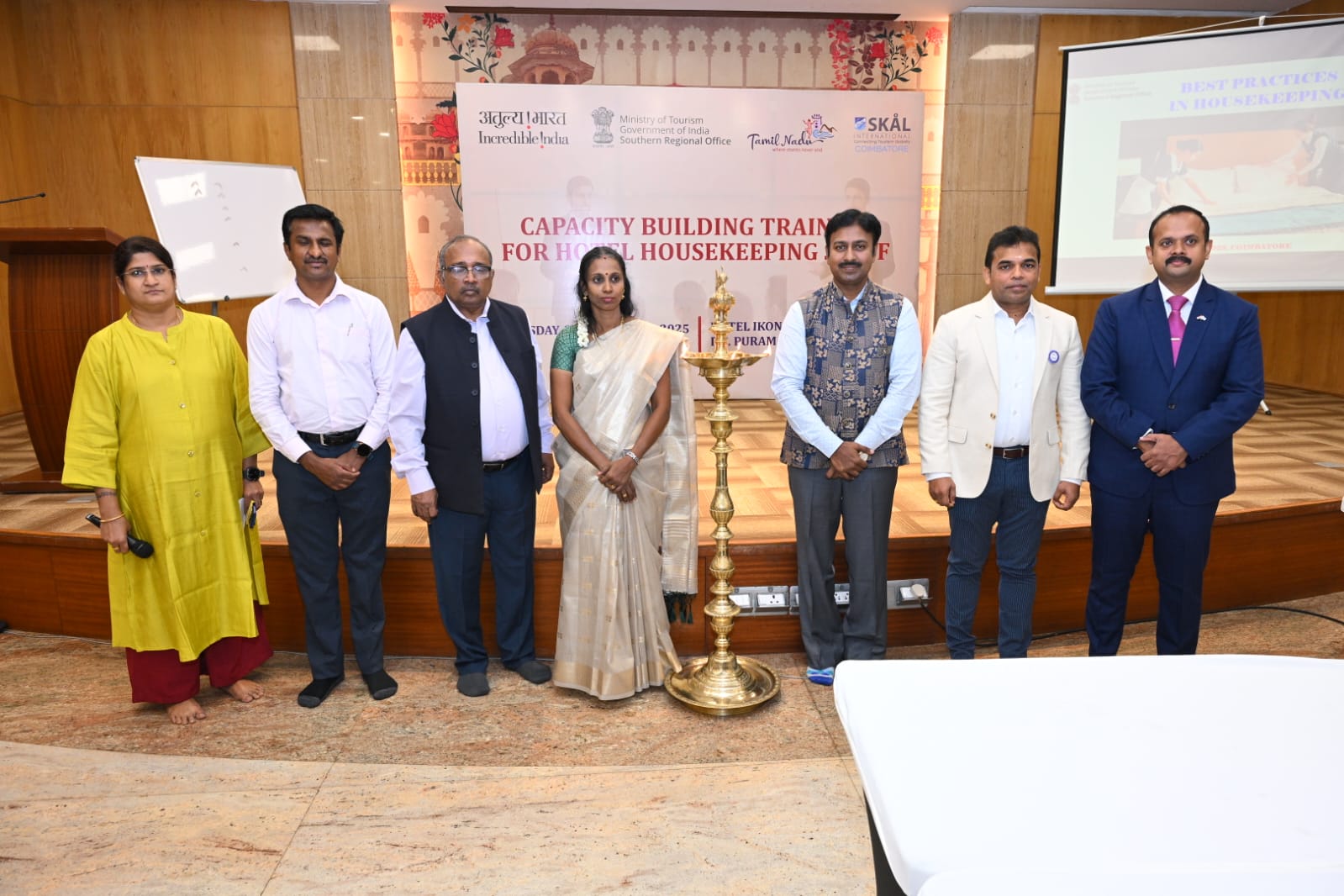CB Ramkumar, Vice Chairman, Global Sustainable Tourism Council (GSTC), discusses how GSTC vigorously promotes globally accepted best practices in sustainable tourism.
Surbhi Sharma
What is the importance of sustainability certification? How can hotels be encouraged to obtain it?
Sustainability certification is no longer a mere option but a necessity. The world is increasingly moving towards verifiable claims, and for too long, hotels have made unverified claims about their sustainability practices. However, when consumers visit, many of these claims fall apart. To support these efforts, governments offer incentives, tax breaks, and subsidies, but many hotels fail to align with the targets. Certification by an accredited third-party body is becoming vital across all sectors, including hospitality.
While many industries, governed by ISO certifications and third-party verification, embraced sustainability early on, tourism has lagged behind. This is changing now as governments, online travel agencies (OTAs), and aid organisations are now demanding transparency in the tourism sector. Certification ensures that sustainability claims are credible, allowing OTAs to verify and feature genuinely eco-friendly hotels.
For hotels, this is not just an environmental concern—it is a business opportunity. Certified hotels can gain visibility on online platforms. When a hotel qualifies through an accredited certification, OTAs’ algorithms prioritise it in search results, helping businesses stand out.
Do you think the centre and the state government must play a major role in regulating the basic levels of such practices, and should this become a part of the certification?
Governments worldwide are increasingly incorporating sustainability into tourism policies. Most hotels are privately owned, and governments are moving away from running hotels themselves. Instead, they focus on creating policies, tax breaks or taking punitive measures that incentivise or even mandate sustainable practices.
In India, states like Gujarat and Uttar Pradesh have embedded sustainability certification into their tourism policies. Hotels certified under GSTC standards have 50 per cent of their certification costs subsidised. This model could be replicated nationwide, with the central government acting as a catalyst in achieving the country’s sustainable goals. India has committed to achieving sustainability goals by 2070. To succeed, the government and the private sector must collaborate closely.
How can one identify between greenwashing and genuine sustainable practices? What other activities does GSTC advocate other than energy conservation?
In the early days of sustainability, hotels would implement eco-friendly practices with genuine passion. They would proudly inform guests about rainwater harvesting, waste management, or using local materials. These actions were authentic, driven by a real desire to conserve resources. However, as sustainability gained attention, many hotels began to engage in greenwashing—superficial gestures like switching to LED bulbs or placing a towel reuse note in the bathroom and calling themselves an eco-resort. Some hotels even chase awards for sustainability with little real effort. But, with today’s savvy consumers, this facade quickly falls apart.
This is where third-party certification plays a crucial role. A verified GSTC-accredited certification ensures that sustainability claims are real, making it easier for consumers to trust their choices. Certification is not just a badge; it is a tool for hotels to prove their efforts and stand out in an increasingly eco-conscious market.
Today, sustainability is not just about the environment; it is also about sustainability management, social sustainability, and cultural sustainability. The socio-economic issues, and the cultural issues, especially in tourism, have become important to ensure that the tourism business continues to be robust and sustainable. It is a risk mitigation where one reduces all the risks to ensure that there is no interruption in business at all.
What criteria are needed to get certified by the GSTC?
Achieving GSTC certification is no easy feat. OTAs, such as Booking.com and Agoda, prioritise certified hotels, which results in better visibility and more bookings. It is a rigorous process that hotels must undergo, beginning with certification bodies that must themselves be accredited by the GSTC. We ensure that certification bodies have the resources, knowledge, and processes in place to certify hotels to GSTC standards.
GSTC certification bodies are prohibited from offering consulting or coaching to avoid conflicts of interest. Certification must remain unbiased and impartial, so that hotels can trust that a GSTC-accredited certification body will assess them rigorously, offering an assurance of true sustainability.
Do you believe that international travellers are likely to select hotels that are certified for basic sustainable practices?
Post-pandemic, travellers have developed a newfound appreciation for authentic experiences. The global shift towards organic living, open-air environments, and nature, is driving demand for sustainable travel options. Research from major travel platforms like Booking.com, confirms that travellers are actively seeking out sustainable accommodations. They want to avoid the traps of greenwashing. Authenticity matters, and they are willing to pay more for verified sustainable stays. This growing demand makes sustainability not only a moral imperative but also a smart business strategy for hotels.
Are there any recent initiatives or collaborations?
One of the major initiatives in India’s push towards sustainable tourism is the recent Memorandum of Understanding (MoU) signed between GSTC and the Hotel Association of India (HAI). 80 per cent of Indian hotels are HAI members, making this partnership pivotal in driving sustainability across the sector.
The trade body recognised the importance of building capacity and raising awareness about sustainability among its member hotels. GSTC is stepping in to offer training programmes, workshops, and facilitation services to guide hotels through the entire certification process.
The main goal is to make sustainability a standard practice in the Indian hospitality industry. We aim to ensure that all HAI member hotels follow sustainable practices, which is the only way forward.
“When a hotel qualifies through an accredited certification, OTAs’ algorithms prioritise it in search results, helping businesses stand out.”
CB Ramkumar, Vice Chairman, Global Sustainable Tourism Council (GSTC)
“The global shift towards organic living, open-air environments, and nature, is driving demand for sustainable travel options.”
“The goal is to make sustainability a standard practice in the Indian hospitality industry.”










